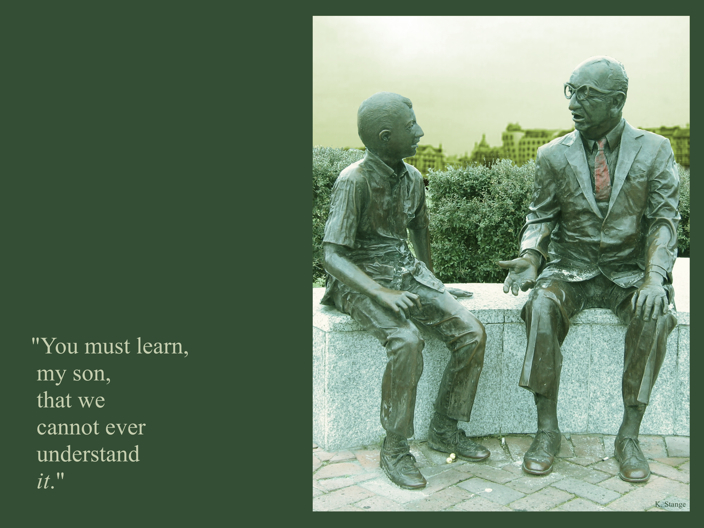|
Introduction
by the editor.
Two
Quests For Meaning...
...seemed a good
title for these two poems.
It may very well be that all real poetry is such a
quest––perhaps even all art. But these
poems seem
especially naked in their quest for meaning in love and sex
and
religion.
When I asked the
poet for a brief bio he responded:
“Tim Robertson was born in Toronto in 1956, grew up
in
North Bay, quit high school to join the army, quit the army to go back
to high school, accidentally studied drama and theatre arts at the
University of Waterloo, married Karin who started a storytelling club,
...fell in with the Conspiracy of Three [a local literary group] over
twenty years ago, and is currently interested in how we can mean anything at
all."
It is entirely
possible, even plausible, that we don't
"mean anything at all". But it is indisputably in our nature
to
search for the meaning of our existence. Artists and
scientists
search in different ways, as do lovers, dreamers, and mystics.
What we discover is
often paradoxical and contradictory.
Science and reason have given meaning to much of our
experience.
Our understanding of the universe and where we came from is
so
very much deeper than that of our ancestors. But what we now know seems
to suggest that our own existence has no special transcendent meaning.
Yet personal experience of passion and beauty, all our
conscious
experience, argues (quite empirically) that our lives do have meaning.
The existentialists may have had it right in saying we all
somehow create
the
meaning of our own existence.
How this is
possible remains a mystery. But that
we do it is evident in the things we have created: art and
science and our loving relationships. It is manifested in our
experience of lust and love, curiosity and awe, and in all the
magic moments of our lives.
Robertson's two
poems are about those magic moments.
They are about wanting the incredible reality of a dream to
actually be real. They are about wanting the brilliance of
myth
to illuminate the mundane. Not surprisingly, this means they
are
about the entanglement of spiritual and carnal knowledge.
They are both sacred and
profane.
And damn good poems.
|

